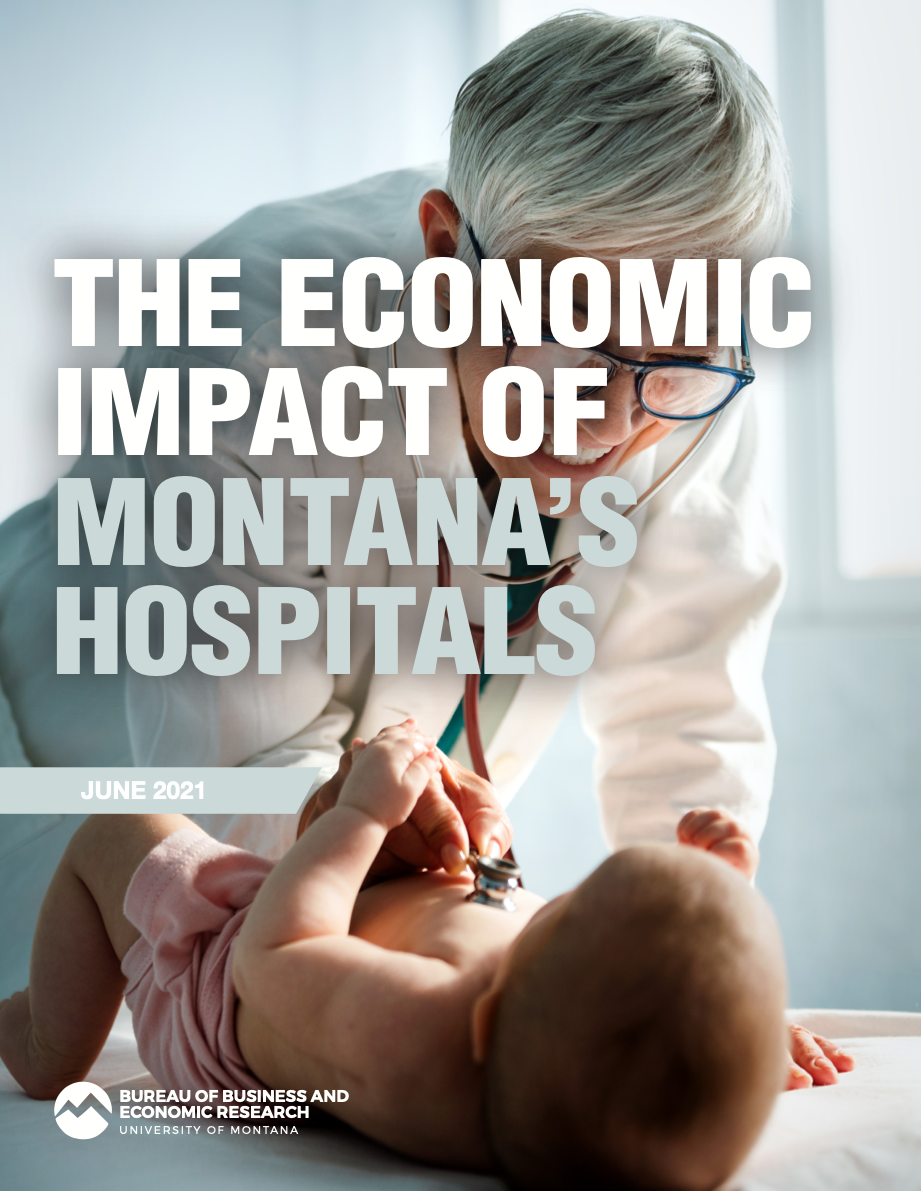New BBER report: Montana hospitals crucial to local economies
FOR IMMEDIATE RELEASE
New Bureau of Business and Economic Research (BBER) report:Montana hospitals crucial to local economies
New study released today by BBER and the Montana Hospital Association
June 9, 2021 (Helena, Mont.) – A new study released today by the Bureau of Business and Economic Research (BBER) and the Montana Hospital Association shows Montana hospitals account for close to 12 percent of Montana’s private sector employment and 13 percent of total private sector wages. The research documents the powerful role Montana’s hospitals are playing as a leading economic driver for the state in terms of income and job growth.
The study shows that 56 of Montana’s 60 non-governmental hospitals account for:
- About 83,900 permanent, year-round jobs across the state;
- Over $6.3 billion of annual, recurring income received by Montana households, of which $5.7 billion is disposable, after-tax income;
- State tax and nontax revenues of approximately $1.5 billion per year;
- Over $16 billion in added economic output annually; and
- About 147,500 additional state residents.
When it comes to jobs, income and economic output as a percentage of total statewide figures, Montana hospitals support 12.1 percent of the state’s private sector jobs; contribute 13.4 percent of the state’s personal income; and fuel 16.4% of the state’s economic output, while contributing more than $1.5 billion in tax revenues.
“Local hospitals are either the largest or one of the largest employers in their communities, paying wages that are higher than most other industries on average. Additionally, hospitals’ demand for goods and services creates a significant number of jobs outside the hospital facility—roughly two additional jobs in Montana for every hospital job,” said Rich Rasmussen, Montana Hospital Association CEO. “As we continue to emerge from the pandemic, Montana’s hospitals have demonstrated that they are essential to both our healthcare safety net and thriving local economies. We believe that hospitals will continue to play an important part in the Governor’s comeback plan for Montana.”
The research also documents the important role hospitals play at the local level in creating and promoting economic vitality beyond their doors.
“Hospitals in particular, and healthcare in general, are labor intensive services that have a large locally produced component. Therefore, a comparatively large fraction of spending on hospitals is paid out as wages and thus remains in the local economy. These connections give communities an important stake in maintaining the economic viability of local hospitals,” said Patrick Barkey, Director of the Bureau of Business and Economic Research at the University of Montana. “Looking forward, the continued accessibility of high-quality hospital services is fundamental for the vitality of any region. Areas which lack such access can face serious hurdles in attracting and retaining businesses and investment that can sustain their economic livelihoods and, more importantly, maintain the health of residents.”
About BBER
Established in 1948, the Bureau of Business and Economic Research (BBER) is the main research unit of the University of Montana’s College of Business. BBER researchers engage in a wide range of applied research projects that address different aspects of the state economy, including survey research, economic analysis, health care research, forecasting, wood products and energy research. For more information, please visit www.bber.umt.edu.
About MHA
The Montana Hospital Association (MHA) is a nonprofit organization with more than eighty members that provide the full spectrum of healthcare services, including hospital inpatient and outpatient services, skilled nursing facilities, home health, hospice, physician services, assisted living, senior housing and insurance services. MHA is the principal advocate for the interests of its members in their efforts to improve the health status of the communities they serve and to make Montana a “Top 10 Healthy State.”




